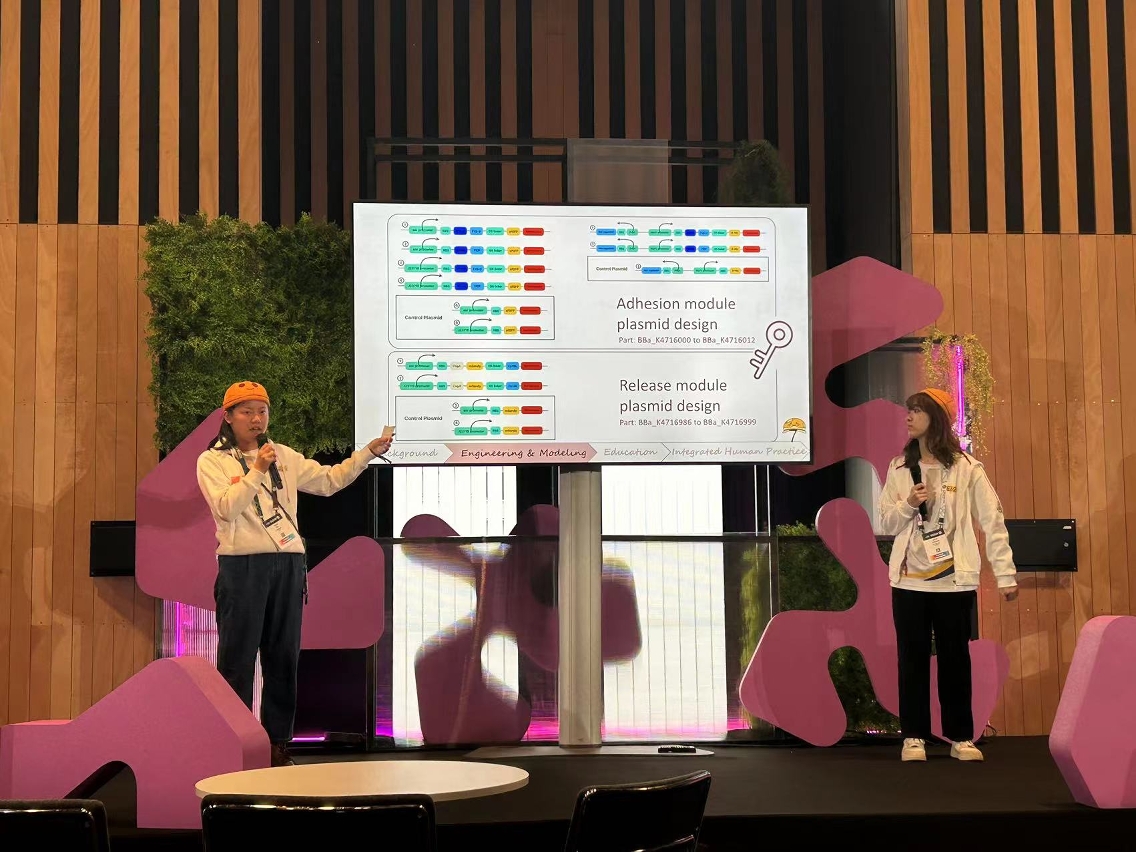 The UM team gives a presentation
The UM team gives a presentation
A team of undergraduate students from the Faculty of Health Sciences (FHS) and the Faculty of Science and Technology of the University of Macau (UM) participated in the International Genetically Engineered Machine (iGEM) Competition 2023 held in Paris. The UM team competed with teams from the world’s top universities and won a silver medal for their research on alleviating the symptoms of coeliac disease. This marks the fifth consecutive year that UM has received an award in the iGEM competition, an international competition on synthetic biology.
This year’s iGEM competition attracted more than 400 teams formed by over 3,000 students from more than 65 countries. The research presented by the UM student team focuses on solutions to coeliac disease, an autoimmune disorder triggered by the consumption of gluten-containing foods. Coeliac disease has significant long-term consequences, including growth impairment in children and an elevated risk of various diseases such as anaemia and osteoporosis. Current treatment options for coeliac disease primarily include a lifelong gluten-free diet and oral enzyme therapy. However, strict dietary restrictions may lead to great inconveniences, and the cost of consuming gluten-free food over the long term can be substantial. Under the guidance of FHS Associate Professor Lee Tsz On, Professor Garry Wong and Associate Professor Kwok Hang Fai, a team of 28 undergraduate students developed a research project called ‘Glutenase Intestinal Guardian (GEIG)’. The team employed genetic engineering techniques to create an enzyme delivery system within bacteria that breaks down gluten. The system, controlled by a nitric oxide sensor, responds to the inflammatory conditions in the intestines of individuals with coeliac disease. By regulating the release of prolyl endopeptidase, it alleviates the symptoms.
The team members dedicated their spare time to project design and conducting experiments. In addition, they held the 1st iGEM Greater Bay Area Synthetic Biology Industry-Academia-Research Forum in collaboration with the iGEM teams from the Hong Kong University of Science and Technology, Beijing Normal University at Zhuhai, and Shenzhen University. They also conducted popularisation activities in primary and secondary schools in the mainland and Macao to raise awareness of gastrointestinal diseases. Liao Wenyu, the team leader and a third-year student in FHS, said that the team had overcome many challenges during the process, from which they had developed their scientific knowledge and improved their soft skills.
The iGEM competition, which was founded in 2003 at the Massachusetts Institute of Technology, is now a global competition. During the competition, student teams from around the world come together to address global challenges through the application of their knowledge of synthetic biology. They showcase cutting-edge research, and foster a mutually beneficial and friendly yet competitive environment. The competition not only promotes interdisciplinary scientific collaborations but also offers the general public an opportunity to envision the future of synthetic biology.



